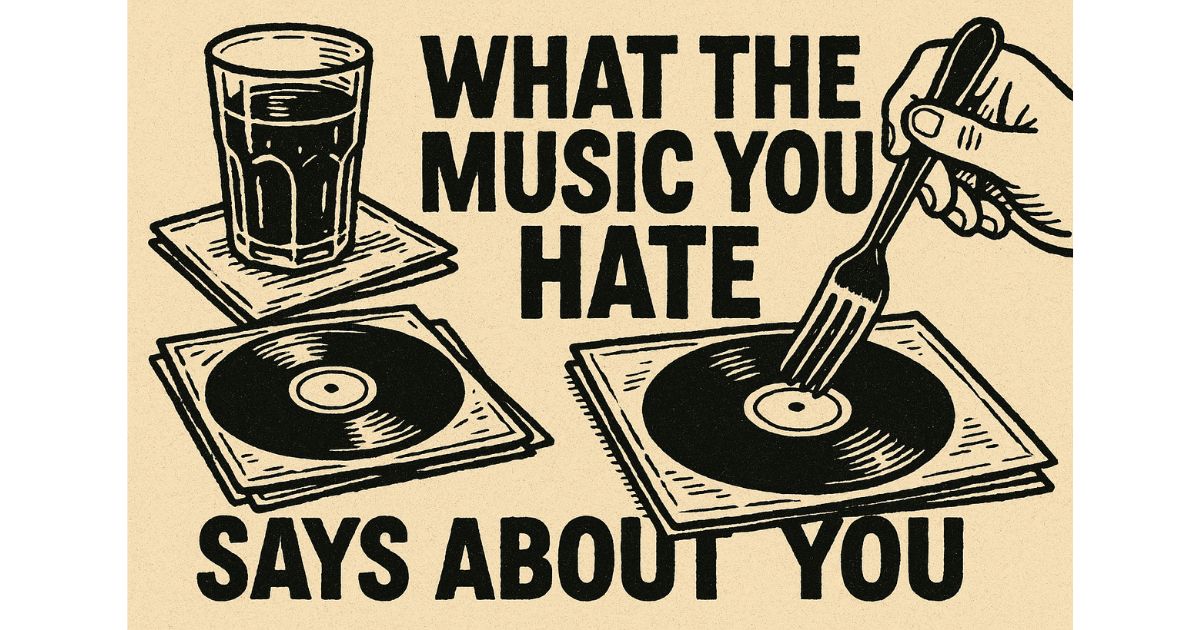Physical Address
5106 Whitman Way, Carlsbad, CA 92008
Physical Address
5106 Whitman Way, Carlsbad, CA 92008

You say you hate country. Or EDM. Or free jazz.
But what if it’s not the music at all? What if what you really hate is the version of yourself it threatens?
Music is supposed to move us — but sometimes, it moves us the wrong way. A grating banjo riff. A beat drop you didn’t ask for. A whiny pop chorus that makes you physically recoil.
That visceral reaction? It’s not just about taste. It’s about identity, memory, and emotional wiring.
Musical hate is a mirror. One that reflects:
And sometimes, the music we hate is the music we secretly envy — for how confidently it takes up space in the world.
For a deep dive into how memory collides with sound, read Rewind Reflex: Why We Play the Same Song Over and Over Again.
Disliking a genre isn’t the same as having no taste for it. Hate has heat. Researchers at Heriot-Watt University and Cambridge have linked musical aversion to:
The music you hate might be tapping a neural wire you’d rather leave unplugged.
| You Hate This… | But It Might Mean… |
|---|---|
| Auto-tuned bubblegum pop | Fear of being seen as superficial or too emotionally open |
| Bro-country or macho rap | Rejection of hypermasculinity or conformity |
| Jazz improv / atonal chaos | Craving structure; chaos feels threatening |
| Electronic dance music | Suppression of physicality or disconnection from crowds |
| Folk ballads / sad acoustic | Discomfort with vulnerability |
In other words: your musical repulsion is autobiographical.
📌 Related: Do Headphones Make Us Lonely?
Music is tribal. The genres you love become identity armor — and those you reject? They’re often identity threats.
You might say, “I hate trap music.”
But what you mean is, “I don’t see myself in that rhythm, that culture, that chaos.”
Hate becomes a gatekeeper. It tells others: “I’m not that person.”
For more on how taste and tribes overlap, see Most Popular Music Genres and Types of Music Listeners.
Many hatreds trace back to personal moments:
Some genres remind us of versions of ourselves we’ve abandoned — or can’t return to. Hate, in this case, is a kind of unresolved grief.
Check these songs for grief and loss to see how certain sounds reopen wounds or help heal them.
You might dislike the sonic elements. Sure. But true musical hatred usually signals something deeper:
Next time a song triggers that knee-jerk reaction, ask: “What part of me is this music threatening?”
You don’t have to like it.
But you might understand yourself better if you listen.